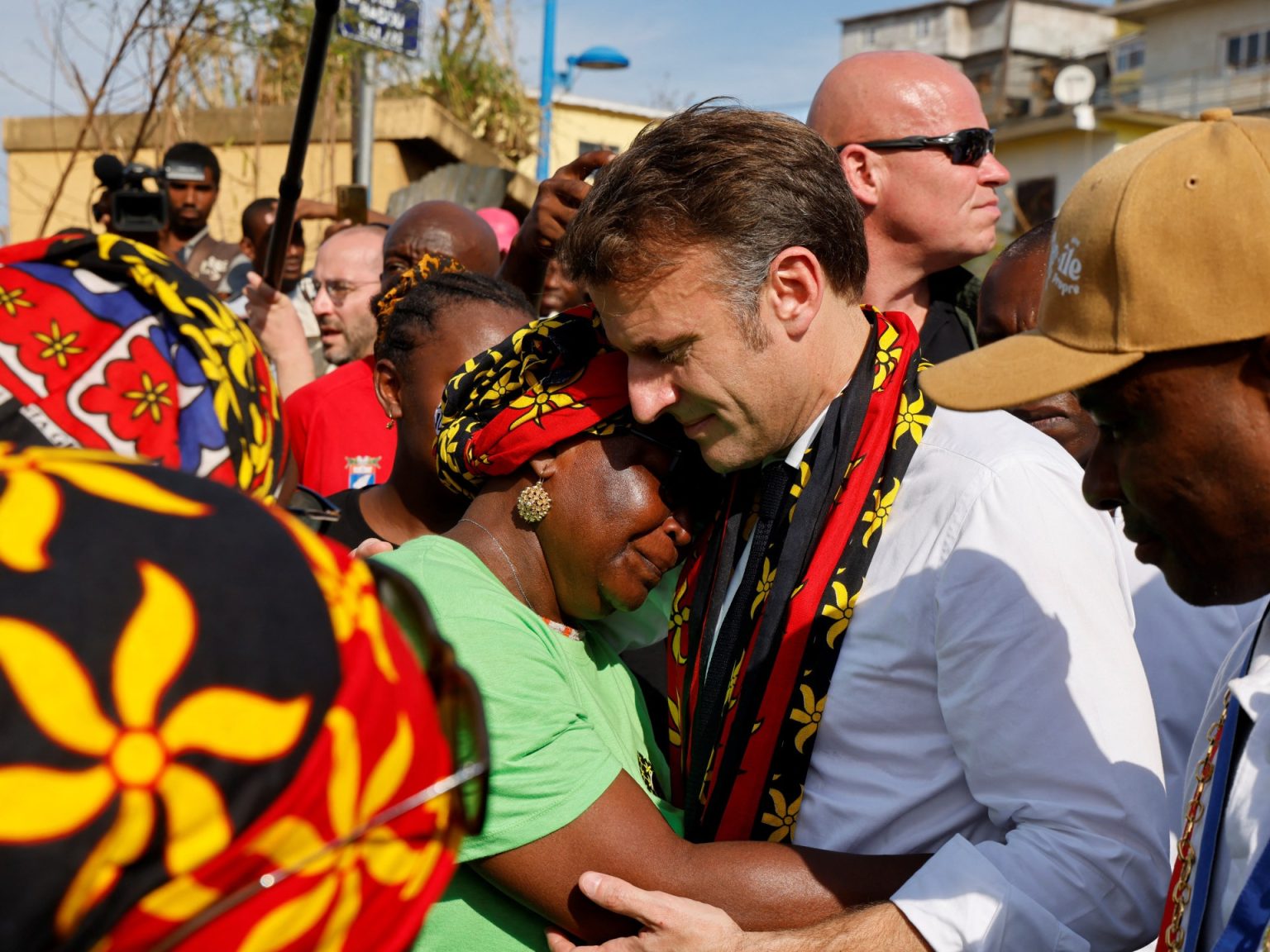French President Emmanuel Macron embarked on a two-day visit to the French overseas territory of Mayotte, located in the Comoros archipelago in the Indian Ocean, to assess the damage inflicted by Cyclone Belna in early January 2024. The cyclone, while not making direct landfall, brought torrential rainfall, strong winds, and high waves, causing significant flooding, landslides, and widespread destruction of infrastructure across the island. Macron’s visit aimed to demonstrate solidarity with the affected population, evaluate the effectiveness of the ongoing relief efforts, and announce further government support for the island’s recovery. Mayotte, already grappling with socio-economic challenges, faced compounded difficulties in the aftermath of the cyclone, highlighting its vulnerability to extreme weather events.
The President’s itinerary included aerial surveys of the devastated areas, offering a comprehensive overview of the extent of the damage. He also met with local authorities, emergency responders, and residents whose lives were upended by the cyclone. These interactions provided firsthand accounts of the challenges faced by the community, including displacement, loss of livelihoods, and the disruption of essential services like water and electricity. Macron reiterated the French government’s commitment to providing immediate and long-term assistance, emphasizing the need for a comprehensive reconstruction plan encompassing not only infrastructure repair but also addressing the underlying vulnerabilities that exacerbated the impact of the cyclone. Discussions with local officials focused on coordinating relief efforts, ensuring the efficient delivery of aid, and implementing measures to prevent future disasters.
The cyclone’s impact on Mayotte exposed the island’s pre-existing vulnerabilities, including inadequate infrastructure, poverty, and high population density. These factors amplified the destructive power of the storm, leading to more extensive damage and a protracted recovery process. The visit brought into sharp focus the urgent need for investments in strengthening Mayotte’s resilience to natural disasters, encompassing improved infrastructure, disaster preparedness measures, and sustainable development initiatives. Macron’s presence also underscored the importance of strengthening social safety nets and addressing the socio-economic disparities that render communities more vulnerable to such crises. The reconstruction efforts represent an opportunity to not only rebuild what was lost but also to build back better, incorporating climate resilience and sustainable practices.
Macron’s visit also provided a platform to address the specific challenges facing Mayotte, including illegal immigration, water scarcity, and economic development. The cyclone exacerbated these existing issues, putting further strain on the island’s resources and highlighting the need for comprehensive solutions. Discussions with local stakeholders focused on strengthening border control measures, improving water management practices, and promoting economic diversification to boost the island’s resilience. The President acknowledged the unique challenges facing Mayotte and reaffirmed the French government’s commitment to supporting the island’s development and ensuring its long-term prosperity. The cyclone’s aftermath provided an impetus for addressing these long-standing issues and implementing concrete measures to improve the lives of its citizens.
The allocation of financial aid for reconstruction and recovery was a central theme of Macron’s visit. He announced substantial funding to support the rebuilding of homes, infrastructure, and public facilities damaged by the cyclone. This financial commitment demonstrated the French government’s recognition of the scale of the challenge and its dedication to assisting Mayotte in its recovery journey. The funds will be channeled towards various initiatives, including repairing damaged buildings, restoring essential services, and supporting affected businesses and families. Macron also emphasized the importance of transparency and accountability in the disbursement of funds to ensure that the aid reaches those who need it most effectively and efficiently. The effective management of these funds will be crucial to the success of the reconstruction efforts and the long-term recovery of the island.
Beyond immediate relief and reconstruction, Macron’s visit signaled a broader commitment to addressing the long-term challenges facing Mayotte. He emphasized the importance of investing in sustainable development, strengthening social cohesion, and promoting economic opportunities to improve the lives of its residents. The cyclone served as a stark reminder of the island’s vulnerability and the need for proactive measures to build resilience and improve its overall well-being. Macron’s pronouncements indicated a long-term vision for Mayotte, encompassing economic growth, environmental protection, and social progress. The implementation of these long-term strategies will be crucial to securing a more prosperous and resilient future for the island and its people. The visit, while prompted by a devastating natural disaster, provided a valuable opportunity to address underlying issues and chart a course towards a more sustainable and prosperous future for Mayotte.

